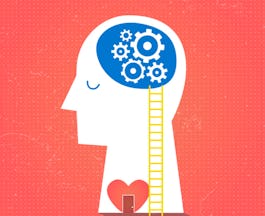Filter by
The language used throughout the course, in both instruction and assessments.
Choose the Positive Psychology Course That Aligns Best With Your Educational Goals

University of Pennsylvania
Skills you'll gain: Resilience

The University of North Carolina at Chapel Hill
 Status: Free
Status: FreeYale University
 Status: Free
Status: FreeThe University of Sydney
Skills you'll gain: Resilience

University of Pennsylvania
Skills you'll gain: Resilience
 Status: Free
Status: FreeYale University
Skills you'll gain: Critical Thinking

University of Pennsylvania

University of Pennsylvania

University of Pennsylvania

University of Pennsylvania
 Status: Free
Status: FreeRelay Graduate School of Education
Skills you'll gain: Human Learning, Communication
 Status: Free
Status: FreeYale University
Skills you'll gain: Emotional Intelligence
Searches related to positive psychology
In summary, here are 10 of our most popular positive psychology courses
- Foundations of Positive Psychology: University of Pennsylvania
- Positive Psychology: The University of North Carolina at Chapel Hill
- The Science of Well-Being: Yale University
- Positive Psychiatry and Mental Health: The University of Sydney
- Positive Psychology: Resilience Skills: University of Pennsylvania
- Introduction to Psychology: Yale University
- Positive Psychology: Applications and Interventions: University of Pennsylvania
- Positive Psychology: Martin E. P. Seligman’s Visionary Science: University of Pennsylvania
- Positive Psychology Specialization Project: Design Your Life for Well-being: University of Pennsylvania
- Positive Psychology: Character, Grit and Research Methods: University of Pennsylvania










